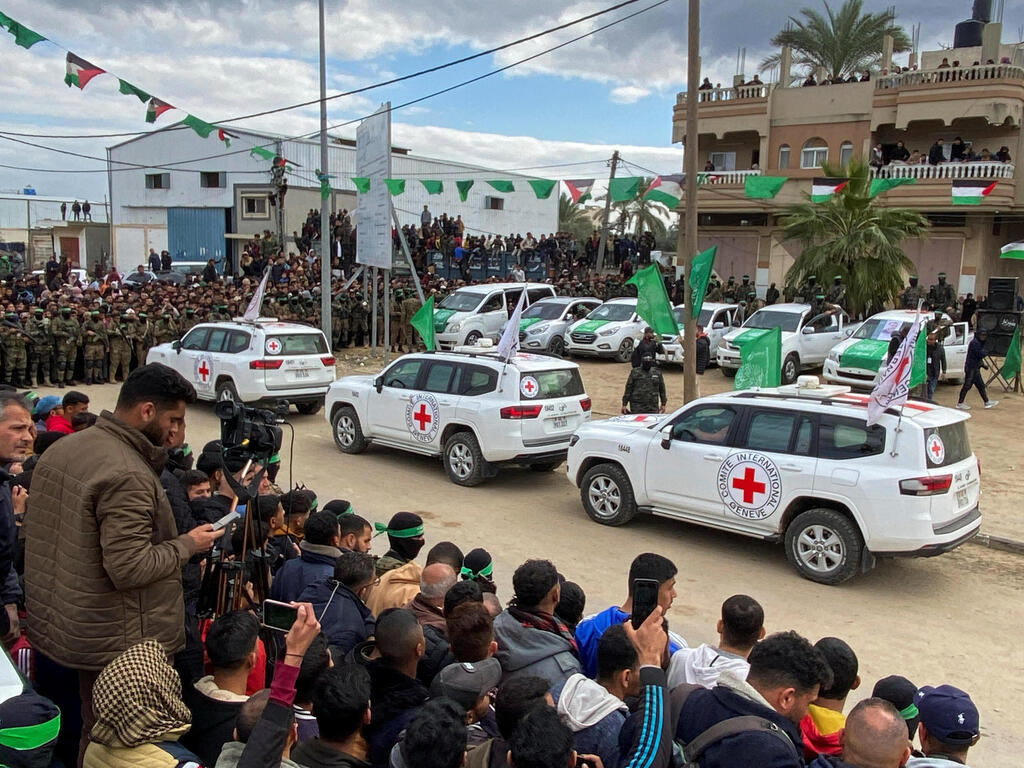Getting your Trinity Audio player ready...
The Health Ministry is seeking permission from hostages recently released from Gaza to collect their medical information as part of a comprehensive report intended for the United Nations, detailing the health consequences of their captivity under Hamas.
In letters sent Wednesday, the ministry asked each of the returned hostages to authorize access to hospital records documenting their condition upon release. The report, the ministry said, will describe the physical and psychological harm caused by abduction and prolonged confinement, and is aimed at supporting international efforts to secure the release of those still held in Gaza.
“We hope you are coping with the challenges of reintegration, undergoing a process of recovery and return to daily function, and receiving the necessary support,” the letter read. “We are always here for you if needed.”
The Health Ministry stressed that the report would rely solely on anonymized data. “The report will describe the condition of returnees in general terms, without personal references or identifiable information,” the letter noted.
The initiative follows backlash over a previous ministry report published in December, which detailed the experiences of hostages freed in a November 2023 deal. That earlier report was criticized by families who said it violated the hostages' privacy by including sensitive medical and personal details without consent. As a result, the report was withdrawn and never sent to the United Nations. The ministry later issued a formal apology, and Dr. Haggar Mizrahi, head of the Health Ministry’s medical division, personally apologized to the affected individuals.
“We drew conclusions from the previous process,” Mizrahi told Ynetnews. “If we do something that isn’t sufficiently accurate, we aim to improve it. When it comes to the hostages, our goal is not just to do well — we aim to excel.”
Mizrahi said the new process is being carried out with heightened attention to consent and privacy. Each former hostage will receive a personal letter, and the ministry pledged to maintain strict confidentiality throughout the process.
2 View gallery


Dr. Haggar Mizrahi, head of the Health Ministry’s medical division
(Photo: Moti Kimchi)
According to Mizrahi, many of the returned hostages have expressed a willingness to contribute to the effort. “We’re in touch with them and know they genuinely want to help,” she said. “I believe we’ll see a very high level of participation.”
The new report is expected to be completed within two weeks and will be distributed to relevant authorities in Israel and abroad, including the United Nations and the International Committee of the Red Cross. Mizrahi noted the importance of documenting the medical implications of the latest hostage deal, which concluded in late February, and highlighting the difference in duration and conditions between various waves of releases.
“We intend to use the report in every forum where it can make a difference,” she said. “There’s a significant gap in timing between the hostage exchanges, and the medical consequences are considerable. It’s important for us to consolidate the data and present a complete picture.”
<< Get the Ynetnews app on your smartphone: Google Play: https://bit.ly/4eJ37pE | Apple App Store: https://bit.ly/3ZL7iNv >>
Mizrahi described widespread health issues among the hostages who returned. Some lost up to 40% of their body weight and suffered severe muscle deterioration. Others exhibited serious vitamin deficiencies that affected basic physiological functions. Many are currently undergoing rehabilitation to regain strength and restore physical health.
In some cases, hostages reportedly received substandard or inadequate medical care while in captivity. “They were kept dozens of meters underground in tunnels, without daylight, hygiene, or proper nutrition,” Mizrahi said. “There were days of total starvation. These are conditions that cannot be ignored, and they need to be brought to the forefront.”
“The hostage deal ended in February, and we’re now at the end of March. Every additional day in captivity endangers those still being held. That’s why it’s crucial to produce a report that accurately reflects the medical and humanitarian toll of their ordeal.”


